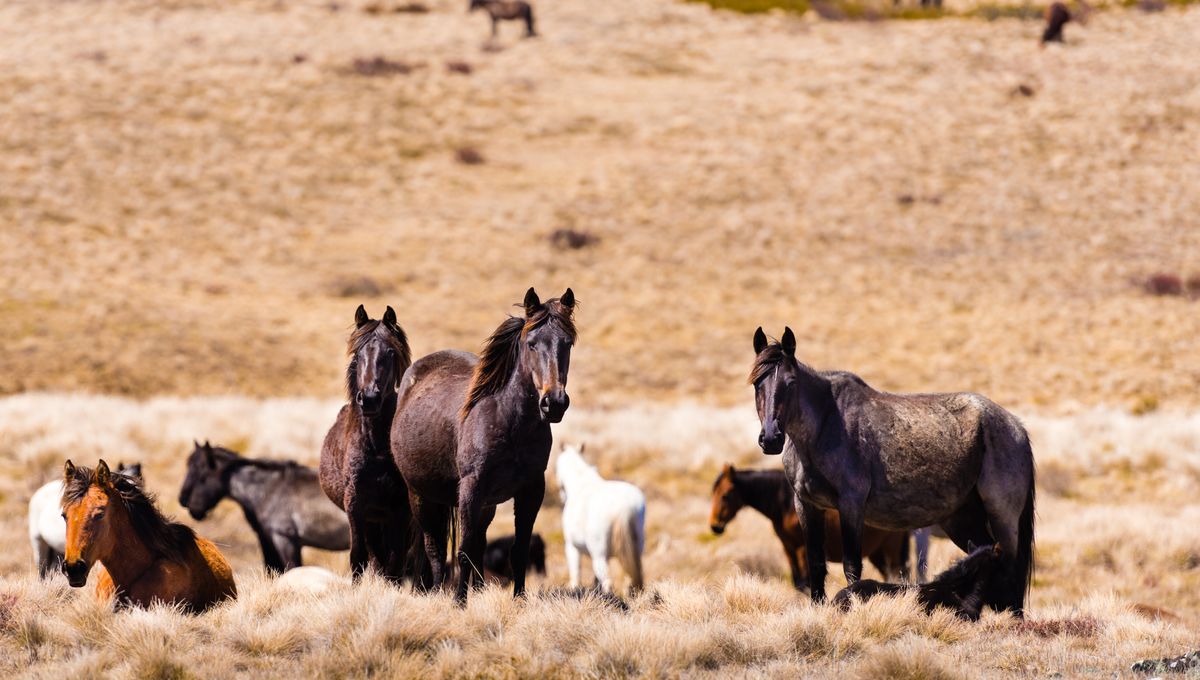
Invasive species are a problem in pretty much every habitat across Earth. Some have been accidentally introduced while others were the result of deliberate actions with unforeseen outcomes. Where problems arise, often with the destruction of habitats for the native species, there becomes the need to find a solution to curb the impacts these species are having. For the feral horses in Australia, this has come down to a cull.
In New South Wales (NSW), approximately 17,432 feral horses, known as Brumbies by the locals, are running wild in Kosciuszko National Park. The number is required by Australian law to be reduced to just 3,000 by June 2027, meaning a major cull will have to take place.
Now, the process of aerial culling, shooting the horses via helicopter, has been introduced as a management method to help meet this target. Though it may seem unusual, these horses are an invasive species, first brought across to Australia by settlers from Europe and number around 400,000 across the rest of the country.
Methods such as rehoming, tranquilizing, and ground shooting have been used to try and keep the numbers under control but with little success at lowering the population significantly. The decision to add aerial culling came after a voting process with 82 percent of 11,002 stakeholder submissions supporting the measures, according to The Guardian.
“The survey results indicate it will not be possible for the NSW government to meet the mid-2027 deadline of 3,000 horses under the current trajectory without aerial shooting,” a statement in Newsweek from the NSW government said.
The reasons for the culling are to protect the native species within the Australian Alps, including species like the galaxias fish and the southern corroboree frog. “Threatened native species are in danger of extinction and the entire ecosystem is under threat,” the state’s Environment Minister Penny Sharpe said in a statement. “We must take action.”
Destruction of habitat and native species is a major conservation issue. In New Zealand, the eradication of stoats, a small mustelid predator known to eat birds and eggs, in an area outside of Wellington has lead to kiwi chicks hatching in that area for the first time in over 100 years.
“I love horses but they don’t belong in national parks. Feral horses are causing serious damage to our native plants and animals, including many endangered species in the Australian Alps,” Tanya Plibersek, the federal environment and water minister, told The Guardian.
On the opposite side of the decision, the Australian Brumby Alliance opposes the cull. “We implore minister Sharpe to strengthen commitment to and resourcing of passive trapping and rehoming as the preferred method of population management, reserving lethal methods to high density areas and designated fragile zones identified in the NSW Wild Horse Act,” the alliance’s president Jill Pickering told The Guardian.
The method was used back in 2000 to kill around 600 horses in a three day period, however, backlash from the public meant that the method was mostly banned.
“No one likes to see animals killed, but the sad reality is that we have a choice to make between urgently reducing the numbers of feral horses or accepting the destruction of sensitive alpine ecosystems and habitats, and the decline and extinction of native animals,” said Jack Gough, an advocacy director at the Invasive Species Council, told local news outlet Sydney Morning Herald.
“We may not like it, but culling by highly trained professionals is the only viable way of reducing numbers and saving the national park and our native animals that live there.”
Source Link: 14,000 Feral Horses To Be Culled In Australia As Aerial Shooting Method Reinstated